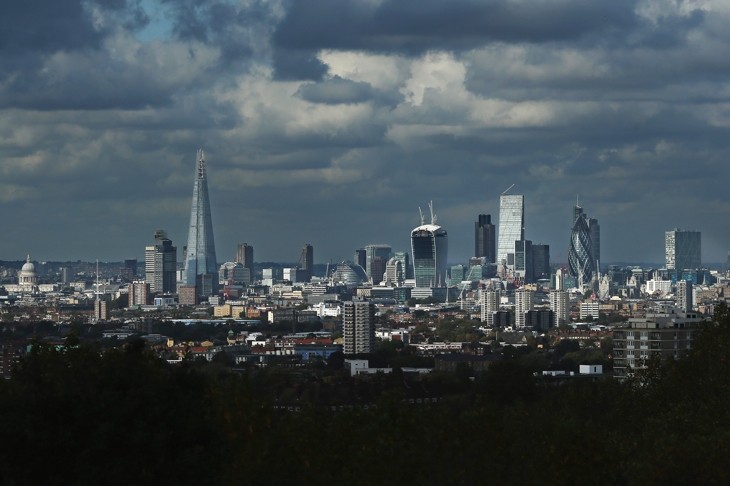Tottenham MP David Lammy has been writing in the Evening Standard about how it makes sense now for London to become a ‘city-state’, following Brexit:
Over the course of the next two years as the reality of Brexit begins to bite, the economic, social and political cleavages between London and other parts of the country will become more pronounced. London’s status as a de facto city-state will become clearer and the arguments for a London city-state to forge a more independent path will become stronger.
I’ve argued before that there is an increasingly strong case for London leaving the union because the aspirations of Londoners and the people of England are diverging so much. But to be honest I’d partly like it to happen just to see people’s reactions when an independent London turned into a sort of Thatcherite dystopia that went against everything the Left once stood for. It would be like a Singapore, but without a critical mass of Chinese people to actually make it work.
The city-state of London would already have one of the highest inequality levels in Europe. It is already a city of extreme wealth, with inner London by far the richest region in the EU. Yet it also has among the worst child poverty rates in Britain.
Although London’s taxpayers in one sense support much of the rest of the UK, the capital also gets the lion’s share of transport spending and its schools also – for now – have more money lavished on them. But the real problem with an independent London would be its lack of social capital. Trust is an essential ingredient to a successful state and it’s why the same countries appear again and again at the top of the world happiness index and other indices of well-being. High-trust societies tend to have lower rates of violence, stronger institutions, less corruption and more moderate politics; these are the places where people wish to invest and send their children. Social capital can take some time to build, which is partly why it is stronger in countries that have been nation-states for many centuries – Norway, Denmark, Switzerland – and those lands were largely settled by people from long-established states. London, to some extent, is living off the social capital built up by over a thousand years of government in England, including the norms that centuries of having lawyers rather than warriors in charge has brought.
What attracts people to London is its diversity but diversity negatively correlates with trust, something found in numerous studies, such as here, here and here. Once countries can no longer rely on social capital to lower the transaction costs of everyday life then they tend to depend more on force and coercion. London already contains eight of the ten most violent districts in the UK and so an independent city would need a fairly aggressive law and order policy. It would probably require some sort of Rudy Giuliani-style policing, but its city crime policies would also suffer from the same racial-political strife that bedevils the US.
Even worse would be the problem of terrorism, which is currently neutralised by the British security services but which London, around 12 per cent Muslim, would be even more vulnerable to. Again, because the city-state would depend so much on flighty capital, it could not afford a French-style terrorism problem and so would need to spy on a large segment of its population. As for religion generally, some Singapore-like prohibition on blasphemy would eventually be considered a small price to pay to avert communal violence.
Tackling poverty would be very difficult for London; raise taxes and its rich would simply move over the M25, and besides which its low levels of social solidarity would most likely mean there would be little appetite for redistribution; nothing resembling, say, the British Labour movement of the late 19th century would arise. Much of social care would become the responsibility of Muslim and evangelical Christian charities.
The main political danger would be if the have-nots became large enough in number to threaten to take power, so turning the city into a Venezuela or Detroit; politics would inevitably be highly-identity-based in such an open-looking, cosmopolitan, liberal city, with demagogues mostly likely appealing to resentments on racial and religious lines and singing an anti-white and, most likely, anti-Semitic tune. Historically great cosmopolitan cities, such as Alexandria, Constantinople, Damascus and Baghdad have never been democracies, and there is a reason for that; London might consider at some point restricting the franchise if nothing else worked.
It would be interesting to see where an independent London came on Transparency International’s Corruption Perception Index. Would enough English cultural norms survive to keep it at first world levels or not? In Tower Hamlets, for example, politics was captured by a clique from one region of one country in south Asia and the results were interesting.
As for public services, I imagine the best London schools would still be very good indeed, as the city attracted elites from around the world. Its universities would probably get even better; diversity almost certainly has a very positive effect on elite educational institutions, and places like LSE already have among the largest foreign-born contingent of any in the UK. As for other institutions; in theory the NHS should become a victim of diversity, because it was the product of a very high-trust society fighting an existential war, but I probably underestimate the extent our health service has become sacralised, so it will probably trundle on. And, of course, an independent London’s restaurants would be excellent.







Comments